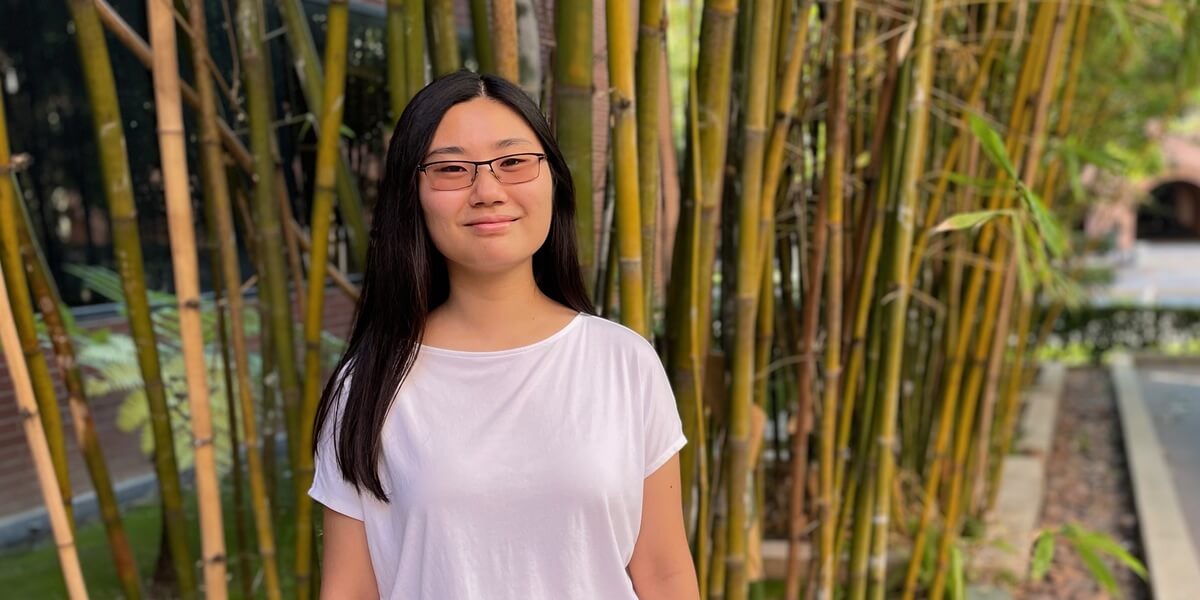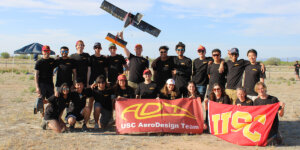
Qinyi Luo’s research will improve the efficiency of training AI systems. (PHOTO CREDIT: USC VITERBI)
On February 2, 2022, Qinyi Luo, a PhD student from the USC Viterbi School’s Ming Hsieh Department of Electrical and Computer Engineering (ECE) and the Department of Computer Science (CS), won the annual 2022 Meta PhD Research Fellowship. In the announcement, Meta noted that this year had consisted of “one of the most competitive pools of candidates to date”. Luo was just one of 37 Fellows out of over 2,300 applicants. With this honor, she received a $42,000 stipend. Her work focuses on speeding up the process of training AI systems to ensure the pace that which AI technology is advancing can be maintained.
“The new machine learning and artificial intelligence applications are growing very fast and at the same time, the hardware is not evolving enough to keep up with the change in the software. So as a system researcher, we’re trying to bridge this gap between the software and the hardware,” said Luo.
Examples of this AI software are the recommended products feature on Amazon or facial recognition used in phone security. One could imagine the challenges of AI systems as similar to a large factory filled with advanced machinery capable of running at high speeds but with only one employee to maintain it all. This employee cannot do all the work at once and if they were to try, it would be extremely time-consuming. Much like such a factory, AI systems are often constrained by a disconnect between potential computing power and physical limitations.
With the support of this fellowship, Luo’s goal is to either add more employees to help carry the load or to adapt the factory so it is easier for fewer employees to manage. However, in terms of computers, this task is not so simple.
“For a machine model to work, you must train it first. Usually, training takes a long time because right now the machine learning model is getting really huge, and you need loads of data to train them all,” said Luo. “For you to get better products, better machine learning services, you want the training to be faster so that you can process more data.”
Luo has been working on this challenge since she started her PhD five years ago. This current project has been going on for about a year and is mainly looking at CPUs and GPUs.
Specifically, she is considering better ways to spread AI computing power out over several devices at once – a process known as parallelizing. Her picture-perfect goal for this project is for others working to train machine learning models to simply plug into her framework, then to connect with the machine they have and allow it to run in with high-performance. As of right now, Luo says that this level of efficiency can only be achieved manually over a long time with human effort and trial and error.
This fellowship allows her to focus on research without worrying about funding, allowing her to pick up the pace on her project as well. “The fellowship has been a great encouragement to me and a recognition of my work. With this support from Meta, I’m confident the project is going in the right direction,” said Luo.
Published on May 23rd, 2022
Last updated on May 16th, 2024










